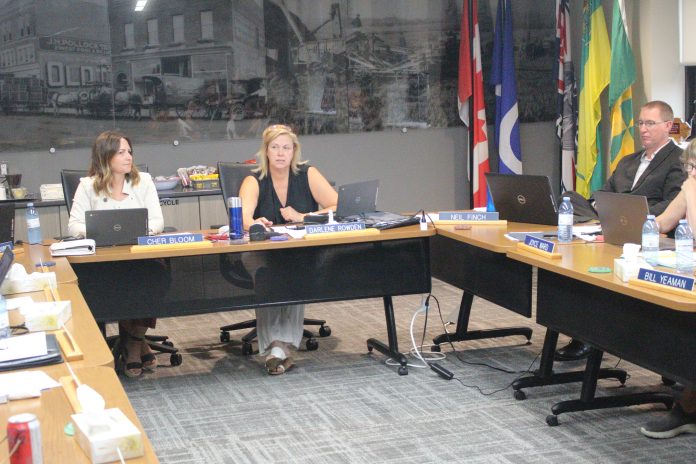A new project in the Saskatchewan Rivers School Division called Safe and Connected Classrooms was introduced to the board of education during their regular meeting on Monday.
The project was introduced as part of the Equity, Diversity and Inclusion Accountability Report. Superintendent Tom Michaud prepared the report but to highlight work being done in Mental Health Capacity Building. Consultant Kelly Gerhardt, and mental health capacity building coordinator Regan Jacobsen presented it to the board.
The presentation focused on the implementation of the Safe and Connected Classrooms model.
Sask. Rivers education director Neil Finch said the report gave a good look into mental health support at the school level.
“Having both Kelly and Regan come in to talk to the board about some of the realities in our schools and what’s working really well is also something that was appreciated,” Finch said.
“That will be a template that will help guide people when they’re looking for supports.”
The model is meant to help staff and students develop an understanding of mental health and to address personal mental health issues. This work involves engaging whole school wellness activities, classroom-based supports and small group intervention.
The division recently completed the Mental Health Connected Classrooms project and will begin rolling it out through doing professional development with staff and administration.
According to a graphic presented to the board the project was done was because students cannot learn unless they are able to direct their own learning. It also tries to create an environment that helps students build resilience to navigate challenges. The philosophy behind it is that if it is good for one student it is good for all students. It is also part of general quality classroom instruction.
The goal of the model is to create a safe place with expectations of connection with visual, spatial and sound. Aspects of the project include making greetings a way to check in, classroom commitments like group etiquette, creating opportunities around emotional intelligence, teaching and seeking out virtues and using EPBL (exploratory and play-based learning.)
According to the presenters, the model is not static and can change.
Finch said it was beneficial for the board to hear the background on all the work being done at all levels. According to Jacobsen and Gerhart, they meet once a month to align the goals of their work. Jacobsen is based out of PACI and Gerhart works with the whole division but they want their work to align according to the presentation.
Report shows inclusive numbers remain steady in Saskatchewan Rivers
The number of Saskatchewan Rivers Public School Division students who need inclusive education and intensive needs has remained relatively steady, according to Michaud’s report.
As of December 2022, 2,235 Sask. Rivers students required intensive supports. By December 2023, that number had shrunk slightly to 1,837 students. Some of these students use the full plan, while others use elements of it.
The number of students who do not have a full separate intervention plan, but are still using elements of it, has also increased.
The Ministry of Education requires school divisions to annually report the number of students requiring intensive supports. As of December 2022, 836 students used the full plan, referred to as an Inclusion and Intervention Plan (IIP). By December 2023, 806 students used an IIP.
Despite the progress, the division is aware of the changing needs in the communities they serve.
In the division, there are currently 32 inclusive education teachers (formerly known as emotional support teachers), five speech language pathologists, 12 school social workers, three English as additional language teachers, one speech and language assistant, four intensive Support consultants, one educational psychologist and five intensive support coaches.
Contracted service providers and partners include YWCA workers, audiologists, occupational therapists, physical therapists through referral with the Saskatchewan Health Authority (SHA) and SHA outreach workers.
Staff changes in 2023-2024 showed two vacancies in occupational therapy due to maternity leave and a contract not being renewed.
There were three language assistants hired through a reallocation of funds from unused contract services.
There was also a reinstatement of a third Mental Health Coach with increased funding for students with complex needs.
There is a vacancy in one speech language pathologist position due to maternity leave. One temporary speech and language assistant position has been made permanent.
The division also saw the retirement of their sole educational psychologist.
A contracted services agreement with Learning Disabilities of Saskatchewan saw 140 psycho-educational assessments.
michael.oleksyn@paherald.sk.ca


